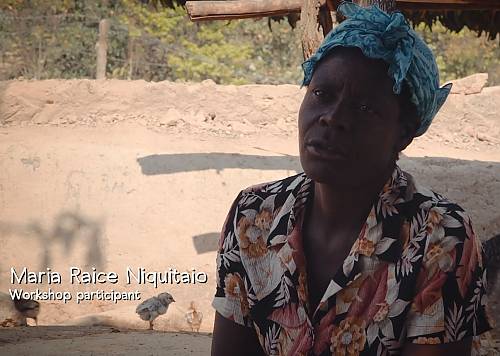Since 2012, the five Portuguese-speaking African countries have been part of a regional project aimed at creating the enabling of institutional and social environments to safeguard intangible cultural heritage, in particular through the improvement of national policy frameworks and training in community-based inventorying and design of safeguarding measures.

Part 1 – Knowledge and Know-how: English|French|Portuguese
Part 2 – Women’s Expressions: English|French|Portuguese
Part 3 – Transmission of Social Practices: English|French|Portuguese
© UNESCO
Tailored training programmes to culture officials, specialists and community members have been implemented in Angola, Cabo Verde, Guinea-Bissau, Mozambique and Sao Tome and Principe, in close cooperation with respective national counterparts, to build a critical level of experience and knowledge. Regionally, the project has also been actively seeking to strengthen cooperation among these five countries and build a network of regional facilitators. A generous contribution from the Government of Norway to the Intangible Cultural Heritage Fund made this project possible.
The following documentary was filmed in September and October 2015 in Ribeira Grande de Santiago (Cabo Verde), during a workshop on community-based inventorying, and in the community of Chinhambudzi (Manica, Mozambique), one year after a pilot inventorying project.
Part 1 – Knowledge and Know-how
Kuruka, the basketry practice in the community of Chinhambudzi (Mozambique) faces sustainability and continuation issues, while in Cabo Verde purga oil is used for healing and aesthetics purposes.
Part 2 – Women’s Expressions
In Chinhambudzi (Mozambique), the community’s women talk about pottery activity and the role of culture in their life and community. In Cabo Verde, the Batukeiras explain the feeling of Batuko drumming.
Part 3 – Transmission of Social Practices
Kukwadzisana’s greeting plays an essential social role in the community of Chinhambudzi and Salineiro’s Tabanca is endangered due to a weak intergenerational transmission.
Written, directed and edited by Fernanda Gallo and Mauricio Oliveira (TATENDA! Projetos Visuais e Socioculturais)
Produced by UNESCO’s Intangible Cultural Heritage Section